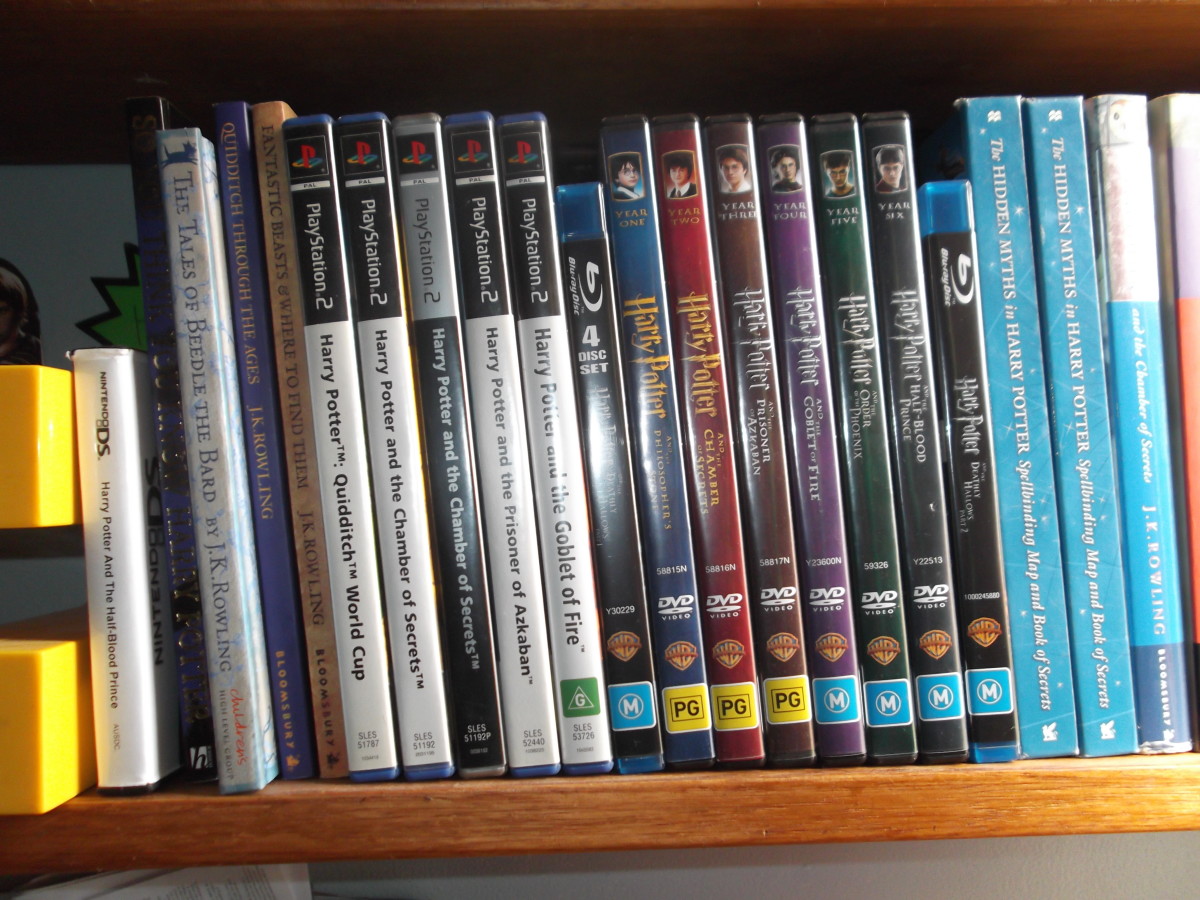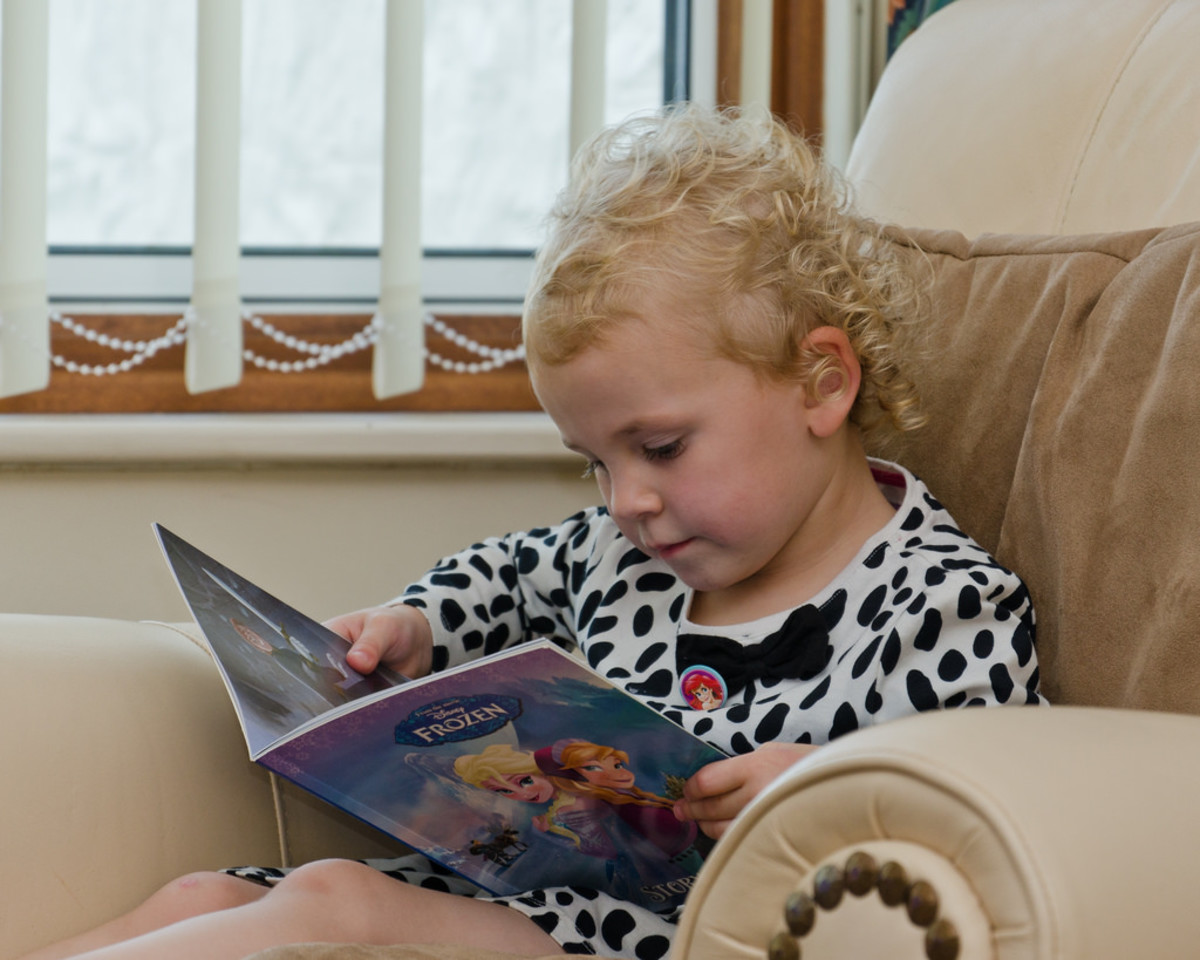Should You Teach Your Baby or Toddler How to Read?
J. Richard Gentry has an article on the Psychology Today website titled Top 10 Reasons to Teach Your Baby or Toddler to Read.1 I taught both of my children to read as babies, so I decided to do my own top 10 list (see My Experience Teaching My Baby to Read for more information). Hopefully, this will be helpful to parents who are either currently teaching their babies to read or to parents who are considering it.
1. Learning to Read is Easier for Babies and Toddlers
This is Gentry's number 3. I put it at number 1 because I think it is hugely important. Five and six-year-olds have to work hard to learn to read. It can be a very frustrating process for many children and it could potentially kill a love of reading.
Babies just need regular exposure to words and phonics to learn to read. They don't have to put in any effort. They don't have to slowly sound out words. According to J. Richard Gentry, learning to read comes naturally from infancy up to age 4. After that, learning to read requires a lot of work on the part of the child.
2. Baby Reading Can Cut Down on Future TV Watching
Some parents teach their babies to read using the Your Baby Can Read DVD series or through screen media, such as the Brillkids Little Reader software. The case is often made by opponents of teaching babies to read that the American Academy of Pediatrics (AAP) recommends no TV viewing for children under 2.
My older child watched about 25 minutes of TV a day to assist in learning to read. Her TV viewing as a 6-year-old was often no more than 30 minutes a day. When she had nothing to do, she picked up a book. She had advanced reading skills, so she could read more chapter books aimed at older elementary-age kids, such as the American Girl series (for ages 9+) and the Little House on the Prairie series.
3. Preschoolers Can Read By Themselves
Most parents are busy and often can't spend much time reading to their kids. I spent twenty to 45 minutes a day reading to each of my kids when they were preschoolers. Since they could read so well, they were able to spend time reading by themselves. Preschoolers and kindergartners who can read aren't limited in their reading by how much time a parent or other caregiver can dedicate.
4. Early Readers Can Build a Large Base of Knowledge
This is closely connected to number 3. Because a preschooler can read, they can build up a large base of knowledge on their own. They are not dependent on an adult to read to them.
5. It Likely Ensures Your Child Won't Have Reading Problems in School
If you start teaching reading consistently to an infant or toddler, they most likely will be competent readers by the time they are school-age. According to the 2009 National Assessment of Educational Progress (NAEP)2 reading report only "thirty-eight percent of twelfth-graders performed at or above the Proficient level in reading." Teaching reading in the infant, toddler, and preschool years could potentially lessen the risk of your child being a poor reader in high school.
6. Early Readers Have Speed Reading Ability
Parents of early readers often report that their children have speed reading ability. I have seen this with my kids. My older daughter could read 70 to 80-page books in about half an hour. I once tested her reading speed and found that she was reading 5 words per second with full comprehension at the age of 5.
7. Early Readers Likely Maintain their Advanced Reading Ability
Few studies have been done on early readers but those studies have found that they maintain a reading advantage. Later readers don't catch up. Dolores Durkin did a pair of studies on preschool readers and found that many early readers skipped a grade. Early readers were ahead and did better on reading tests. Children who learned to read at 3 were also better readers than those who learned at the age of 4. As of yet, no studies have been done on baby readers, but if the Durkin studies are anything to go by, earlier is better when it comes to reading.
8. It Makes Spelling and Grammar Easier to learn
My kids almost always knew when they had spelled a word incorrectly. They knew when a word didn't look right. They were either able to figure out how to correct the word or ask for help. I think early reading also made grammar easier. My kids never made a mistake when learning concepts like verb tenses. My guess is that they were so used to seeing the written word that they knew what looked right and wrong.
9. Increase the Odds That You Will Raise a Lifelong Reader
According to studies done by Scholastic3, children read less for pleasure as they get older. There can be many reasons for this, including distractions like TV and video games, but another possible reason is that children's reading abilities may not be good enough.
As I already mentioned, only 38% of 12th graders are proficient in reading, according to the NAEP. Children won't enjoy reading if they are not good at it. A child who is taught to read early is much more likely to be a good reader (based on Durkin's study and others).
10: Baby Reading May Better Prepare Your Child for a Globalized World
According to estimates, 50 million US jobs will eventually disappear and 60% of the remaining jobs will be high skill, high knowledge jobs. Only 20% of Americans will have the necessary skills to fill these jobs.
If baby readers maintain very advanced reading skills into adulthood they may be much better prepared for the future reality they will face. Because much of our knowledge comes from reading, faster reading with better comprehension should be a huge benefit.
References:
This content reflects the personal opinions of the author. It is accurate and true to the best of the author’s knowledge and should not be substituted for impartial fact or advice in legal, political, or personal matters.
© 2011 LT Wright








